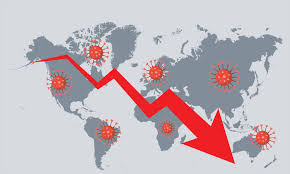ISLAMABAD ( Web News )
Parliamentary Secretary for Commerce, Textile, Industries and Production Ms Aliya Hamza Malik has said in the aftermath of Covid-19, the federal Government disbursed Rs 75 billion amongst the industrial workers she added that during the first and second wave of the pandemic. Besides, Rs 71 billion were released for the Utility Stores whereas the Prime Minister provided relief packages to factories and industries in the electricity and gas bills. She said this while speaking at Pre-budget symposium and launch of SDPI’s report titled ‘Supporting export competitiveness amid Covid-19 in Pakistan, held by Sustainable Development Policy Institute (SDPI) in collaboration with UK’s Foreign, Commonwealth & Development Office (FCDO).
Ms Malik termed SDPI’s report highly valuable and said that it would help the government in finalizing Federal Budget for the next financial year as well as to accelerate the reforms and incentives for the export led firms. The availability of rapid evidence from businesses could help the Ministry of Commerce to improve the facilitation on the part of the government, she added.
Senior Economist and Team Lead, FCDO, Pakistan, Mr Richard Ough, while appreciating SDPI for producing a well searched report, said that the Covid-19 pandemic rendered huge impact on the businesses in Pakistan. Therefore, the government needs to reach out to those sectors of the economy that have been worst hit.
“The new normal is all about adapting, adjusting and reinvigorating our system and way of life,” Mr Ough said and suggested that the green recovery needs to be taken in a serious manner as a voyage for the future of green economy.
Dr Abid Qaiyum Suleri, Executive Director, SDPI, remarked that that the third wave of the covid-19 has struck us in times when we are preparing for the Annual Development Program as well as the annual budget 2021-22. Thus, he said, it demands a greater focus to be paid on attracting new foreign investors and supporting our local export led enterprises. Likewise, Pakistan should open up for non-traditional markets such as Africa and Latin America to further strengthen its exports.
“Linking research and evidence-based policy with practice should be one of the major aims of the independent institutions amid the new normal,” Dr Suleri emphasized and added that apart from the challenges the Covid-19 has ensued new opportunities for getting digitized our markets and economics and also ensuing the freelancing economy in the country.
Ms Shandana Gulzar Khan, MNA, was of view that in Pakistan, we lack empirical data and research which can support the legislators for bringing innovative changes in the economy. The Covid-19 impacts on trade has been devastating and we need to upscale our export firms for the economic revival in the country.
While highlighting the role of export in Pakistan economy,Ms Annabel Gerry, Development Director, FCDO, Pakistan, suggested that trade openness, decreasing tariff barrier, regional integration and liberalizing regional trade, will be important for Pakistan’s export led industries. She added that reforms in the taxation sector are also required and the export sector needs special attention in these times of the pandemic.
Dr Vaqar Ahmed, Joint Executive Director, SDPI, while moderating the session, highlighted the key features of his report and explained that how different sectors of the export led industries were affected by the pandemic. He said that the report sheds light on three main areas i.e., exploring possibilities for an export-led recovery, enabling non-export sectors to pivot better and an early growth signs in exports as lockdown ease.
He added further that the trade costs have been increased for exporter and importers, loss in productivity, new stringent SPS measure increased, firms were forced to embrace e-commerce and digitization and learning by-export methods. He said that his report suggest that the tariff and tax policies need to be revisited to facilitate post-pandemic recovery, e-commerce policy needs legislation for data protection and online security, increased coordination across commercial officers and poetizing deeper public private dialogues.
Managing Director Pakistan Software Export Board, Ministry of Information Technology and Telecommunication,Mr Osman Nasir, on the occasion highlighted that the IT sector faces numerous challenges pertaining ease of doing business. He was of view that Pakistan has great potential in the field of IT, freelancing and software sector that could be tapped by right kind of facilitation.
Mr Hassan Daud Butt, CEO, Khyber Pakhtunkhwa Board of Investment and Trade, Government of Khyber Pakhtunkhwa, emphasized on the improvement of technical and vocational skills of our industrial workers along with digitization. Besides, we need toimprove our regional connectivity and Hi-Tech, agro, mines, mineral and gems-based industries should be explored.
Mr Syed Abbas Mehdi, Executive Director, Export Development Fund Ministry of Commerce, earlier remarked that the report shared by SDPI, will be surely helpful in the framing of the annual budget 2021-22 and the Export Development Fund (EDF) in the country.

